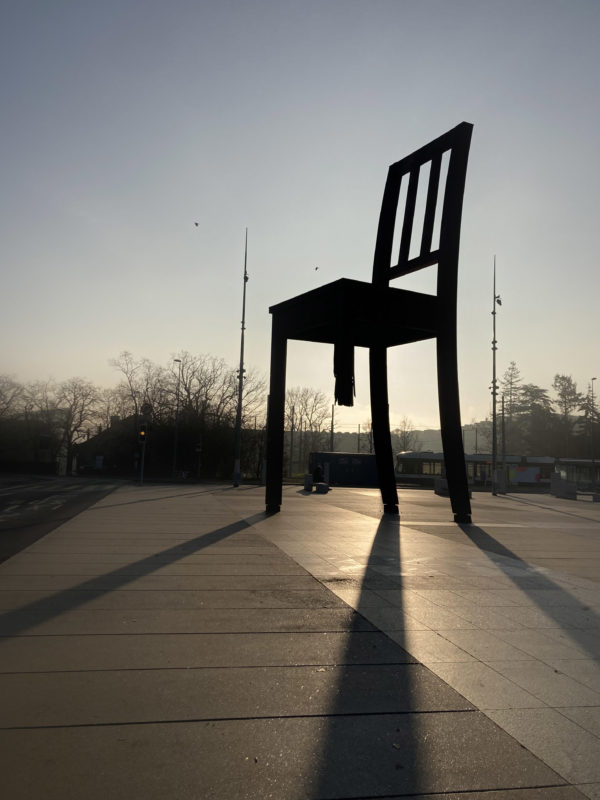This project examines how the UN human rights system can better contribute to the prevention of violent conflict and large-scale human rights violations. Building on an earlier joint initiative that analysed the system’s information outputs through a “big data” approach, the project explores how human rights trends, early warning signals, and improved information channeling can strengthen prevention across the UN architecture.
Covering a broad continuum of prevention—from structural risk factors to imminent crisis response—the project studies how human rights analysis can identify early signs of declining civic space, rising authoritarianism, structural inequalities, and the deterioration of economic, social and cultural rights (ESCR). It also investigates how these trends connect to the escalation of violence and how more effective institutional processes can support earlier, more protective action.
Through analytical research, expert consultations, and policy engagements with member states, civil society, and UN actors, the project aims to generate evidence-based proposals to reinforce the preventive capacity of the human rights system at a moment of heightened geopolitical tension and systemic reform discussions, including those connected to UN80 and the evolving prevention mandate of the Human Rights Council.
The project seeks to strengthen the preventive capacity of the human rights system by analysing how early warning signals, information flows, and institutional processes can better anticipate and mitigate risks of violent conflict. It pursues three main objectives, each focused on a distinct dimension of the prevention continuum.
Human Rights Trends and the Authoritarian Slippery Slope
This strand examines which patterns of human rights deterioration tend to precede transitions to authoritarian governance, ultra-nationalism, and the escalation from structural into physical violence. Drawing on large-scale analysis of UN human rights data from the previous joint project, it explores how the concentration of power and resources, shrinking civic space, and targeted repression of specific groups function as early indicators of heightened risk. The aim is to identify practical lessons and warning thresholds to assist policymakers in acting before crises turn violent.
Economic, Social and Cultural Rights, Inequalities, and Prevention
This component undertakes a deep dive into the role of economic, social and cultural rights (ESCR) in conflict prevention. It adopts a political economy lens to analyse how persistent inequalities, marginalisation, and the diversion of public resources—including through rising military expenditure—undermine the fulfilment of ESCR and create conditions conducive to instability. The research explores how ESCR-based analysis can inform prevention efforts, including debates around “maximum available resources”, structural discrimination, and the distributional consequences of national policies.
Early Warning and the Evolving Prevention Mandate of the Human Rights Council
This strand focuses on how the Human Rights Council and the broader UN human rights system can intervene earlier and more effectively when human rights risks emerge. It assesses ongoing discussions related to UN80, the future of prevention within the Council’s mandate, and opportunities to improve information channeling between Geneva and New York. The objective is to explore how existing mechanisms—Special Procedures, Treaty Bodies, Universal Periodic Review, and Secretariat processes—can be better integrated into a coherent early warning and response architecture.
Cross-Cutting Questions
Across these three objectives, the project considers:
- What human rights trends most reliably signal heightened risk of conflict or mass violations?
- How can ESCR analysis contribute to earlier and more accurate risk assessments?
- Which institutional reforms or procedural innovations could improve the Human Rights Council’s preventive role, especially in the context of UN80?
- How can the human rights pillar more effectively connect early warning to early action across the UN system?
- What lessons from existing national or regional prevention structures can inform the design of more responsive architectures?
The project generates a set of analytical and policy-oriented outputs designed to strengthen the preventive role of the human rights system and inform ongoing reform debates, including those linked to UN80 and the future of the Human Rights Council.
Analytical Reports
- The Slippery Slope of Authoritarianism – Using Human Rights to Anticipate and Prevent Conflict
- Understanding ESCR and Prevention – A Deep Dive into the Politics of Marginalisation, Inequalities and Resource Allocation
- Early Warning and the Human Rights Council’s Prevention Mandate
Working Papers and Concept Notes
- Working paper on ESCR, military expenditure, and prevention
- Interdisciplinary input to discussions on the CESCR “Geneva Comment” on ESCR in situations of armed conflict
- Conceptual reflections on human rights analysis, risk anticipation, and national prevention strategies
Policy Dialogue Outputs
- Informal notes and summaries from expert roundtables with member states, civil society and UN actors
- Policy briefs distilling key findings for policymakers and diplomats
Communication Outputs
Opinion pieces, blogs and targeted communication materials produced around key policy moments such as Geneva Peace Week, CESCR sessions, Human Rights Council meetings and UN80-related events.
Expert discussions, civil society dialogues and multilateral exchanges that examine how the human rights system can strengthen its preventive function. These engagements bring together member states, UN actors, academics and civil society to reflect on emerging risks, institutional reforms and the implications of UN80 for the prevention agenda.
Expert Consultations
Closed-door expert meetings gather around twenty key stakeholders per session to discuss authoritarian risk patterns, the escalation from structural to physical violence, and the role of human rights information in anticipating conflict. These exchanges support the development of the analytical reports and working papers.
ESCR and Prevention Dialogues
Dedicated meetings explore the role of economic, social and cultural rights in prevention, including inequalities, marginalisation, resource allocation and the implications of military expenditure. These dialogues inform the report on ESCR and prevention and the interdisciplinary working paper feeding into the CESCR “Geneva Comment” process.
UN80 and the Future of the Human Rights System
Sessions held with civil society and member states examine how the UN80 initiative intersects with the preventive responsibilities of the human rights pillar. Activities include preparatory civil society meetings, breakfast roundtables and hybrid dialogues carried out in collaboration with partners such as ISHR and the Coalition for the UN We Need.
Multilateral Briefings and Policy Exchanges
Policy discussions take place alongside Human Rights Council sessions, Geneva Peace Week and the Peacebuilding Architecture Review, enabling the research to feed into broader debates on prevention, accountability and system-wide early warning.
Public Events
The project contributes to thematic public events and panel discussions in Geneva on issues such as ESCR in conflict settings, authoritarian trends and the role of human rights due diligence in prevention.
This project (January–December 2025) is made possible through the generous support of the Government of Switzerland.
Swiss funding enables the Geneva Academy to deepen its research on the preventive role of the human rights system, analyse early warning trends, and facilitate expert dialogues on the implications of UN80 for the human rights pillar. It supports analytical work on authoritarian risk patterns, economic, social and cultural rights, and the evolving prevention mandate of the Human Rights Council.
This contribution allows the project to conduct independent research, engage with civil society and member states, and provide evidence-based proposals to strengthen the capacity of the human rights system to anticipate and prevent large-scale violations and emerging crises.




